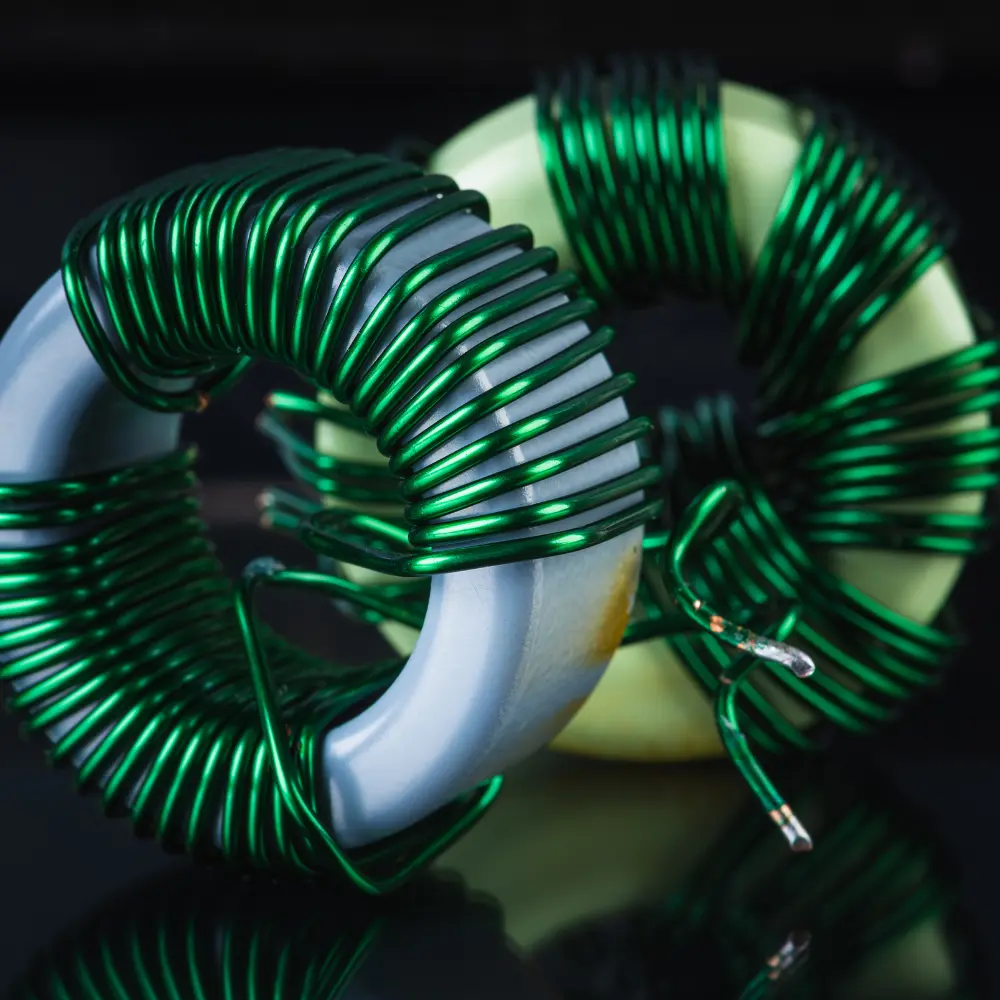What Role does Toroids and Custom Coil Winding Play in Solar Energy Systems?
Toroidal transformers are essential in growing renewable energy resources—especially solar energy. Over the last two decades, the proliferation of solar panels has grown from commercial and governmental use to residential use. Of course, toroids are not solely responsible for spreading solar panels, but they play a significant role. Integrating toroidal transformers in solar energy systems represents a substantial advancement in optimizing energy conversion efficiency. This transformer type, distinguished by its ring-shaped core, offers several technical advantages crucial for solar power applications.
Benefits of Toroids in Solar Panels
Reduction of Core Loss
 One of the standout benefits of toroidal transformers in solar panel systems is their superior ability to reduce core losses. Core loss refers to the energy lost in heat due to the alternating magnetic field in the transformer’s core. The design of a toroidal transformer is distinct in that it features a ring-shaped core, which allows for a more even distribution of the magnetic field. This even distribution is crucial because it minimizes the hysteresis and eddy current losses – the two primary components of core loss. In the context of solar inverters, which convert the direct current (DC) generated by solar panels into alternating current (AC), this reduction in core loss means a more efficient conversion process. As a result, a more sizable proportion of the solar energy captured by the panels is converted into usable electricity. This efficiency is not just a technical improvement; it directly impacts the overall output of solar energy systems, making them more economically viable and effective in harnessing solar power.
One of the standout benefits of toroidal transformers in solar panel systems is their superior ability to reduce core losses. Core loss refers to the energy lost in heat due to the alternating magnetic field in the transformer’s core. The design of a toroidal transformer is distinct in that it features a ring-shaped core, which allows for a more even distribution of the magnetic field. This even distribution is crucial because it minimizes the hysteresis and eddy current losses – the two primary components of core loss. In the context of solar inverters, which convert the direct current (DC) generated by solar panels into alternating current (AC), this reduction in core loss means a more efficient conversion process. As a result, a more sizable proportion of the solar energy captured by the panels is converted into usable electricity. This efficiency is not just a technical improvement; it directly impacts the overall output of solar energy systems, making them more economically viable and effective in harnessing solar power.
Toroids’ Efficacy in Managing EMI
Another critical advantage of toroidal transformers in solar energy systems is their effectiveness in handling electromagnetic interference (EMI). EMI can disrupt the performance of electronic devices and is a concern in environments where multiple electronic systems operate in proximity. The toroidal transformer’s unique design inherently helps contain its electromagnetic field within its core. This containment is significant because it drastically reduces the amount of EMI that escapes into the surrounding environment compared to traditional transformers. For solar panel systems, especially those installed in residential or urban settings, managing EMI is essential to ensure they do not interfere with household electronics or broader communication networks. By using toroidal transformers, solar systems can operate more harmoniously within these environments, maintaining the integrity of the system and the electronic devices around it.
Small and lightweight Toroids
Additionally, toroidal transformers’ compact and lightweight nature offers practical installation benefits. Space and weight often limit solar system installations, particularly in rooftop setups. Toroidal transformers occupy less space and add less weight than traditional transformers, facilitating easier installation and integration into various configurations.
Toroid Coil Winding
In toroidal transformers, the coil winding process is pivotal in enhancing their performance, particularly critical in solar energy systems. This process involves meticulously distributing copper wire coils around the toroidal core’s entire circumference. Such uniform distribution is more than a manufacturing preference; it is a technical necessity. It ensures an evenly spread magnetic field, crucial for minimizing copper losses – the energy lost due to the resistance of the copper windings. In solar applications, where efficiency is paramount, this even distribution ensures that the transformer operates at peak efficiency, converting the maximum amount of solar-generated electricity with minimal energy wastage.
Moreover, the uniform winding of coils significantly improves the transformer’s overload tolerance. This attribute is particularly beneficial in regions with variable solar intensity, where solar inverters can experience fluctuating current levels. The even coil distribution allows the transformer to handle these fluctuations more effectively, preventing overheating and ensuring long-term durability. Additionally, this winding technique optimizes thermal performance, facilitating more efficient heat dissipation. Effective heat management is essential in solar energy systems, contributing to the transformer’s longevity and reliability under high load conditions. This focus on precision in the coil winding process underscores the transformer’s suitability for the fluctuating demands of solar energy applications.
Torelco, Your Toroid and Custom Coil Winding Partners
Using toroidal transformers in solar energy systems effectively enhances power conversion efficiency, reduces electromagnetic interference, and addresses physical installation constraints. Their application is a step forward in optimizing the performance and reliability of solar energy systems.

